Man down: how crashes shape the Tour
Losing Kanstantin Siutsou is a blow for Sky but it's how they respond that counts
Words: Lionel Birnie in Rouen
Wednesday July 4th 2012
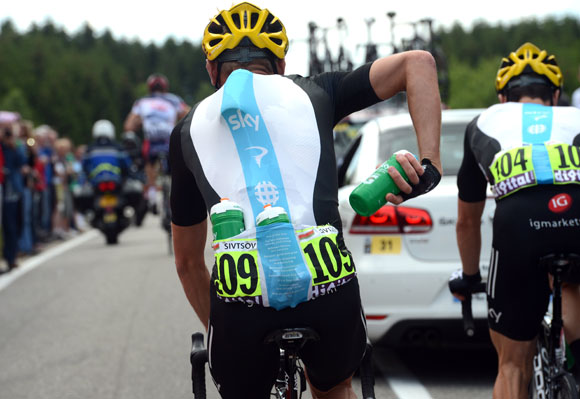
One of the cornerstones of Dave Brailsford's philosophy is to control the the things that are controllable. That means taking care of every detail that is within his influence and eliminating from his thoughts, as far as possible, those things he cannot change. The ethos runs through the Sky team, although some are more natural adopters of the theory than others.
After two cautious road stages during which the bunch appeared to have struck a pact to keep calm and stay safe, the third stage from Orchies to Boulogne-sur-Mer was a nervy affair more typical of the Tour's opening week.
Everyone knows that the first job for any overall contender is to avoid the crashes. Last year, with the first week drawing to a close, Bradley Wiggins found to his cost that disaster can strike at any time. On the road to Châteauroux he fell in a crash on a straight but narrow road as the bunch wound up for the intermediate sprint. And that was it, the Tour was over.
British fans probably feared the worst yesterday when they saw television pictures of a rider in a Sky jersey sitting in the middle of the road after a crash with around 40 kilometres to go. As the camera zoomed in, we could see the faller was not Wiggins but his team-mate Kanstantsin Siutsou. He pulled out of the race on the spot and it was later revealed he had broken his left tibia.
Get The Leadout Newsletter
The latest race content, interviews, features, reviews and expert buying guides, direct to your inbox!
Losing Siutsou four days into the race is undoubtedly a blow. The Belarussian would have been one of Sky's workhorses in the mountains, slotted into the order of things somewhere between Michael Rogers and Chris Froome.
But the consequences are more subtle than that. A Tour de France campaign stands and falls on moments like that. As the race goes on, the workload will be spread among seven riders rather than eight. It doesn't sound like much, but reduced to bare numbers, that means each remaining domestique has to do around 14 per cent more work. That means everyone will have to absorb more responsibility. The men who drop back for bidons – the plastic water bottles used by the riders – will find they have to make a few more trips to the team car. When it comes to setting the pace on the front of the bunch later in the race, each Sky man will have to ride that bit further. And if someone else crashes or gets sick, then the workload increases again. In a three-week Tour it all adds up.
And that is one of the factors in the Tour that is often overlooked. Think back to last year and the way Cadel Evans was supported by BMC Racing. Evans's team-mates were Brent Bookwalter, Marcus Burghardt, George Hincapie, Amaël Moinard, Steve Morabito, Manuel Quinziato, Ivan Santaromita and Michael Schär. An honest appraisal of those men is to say they are closer to the 'water carriers' end of the spectrum than the 'stars' end.
That is to underestimate their input because they supported Evans brilliantly, without it always being obvious. All eight men made it to Paris in one piece too.
As much as the idealists want the Tour to be a pure test of strength, it is important to recognise that fortune plays a huge part.
Siutsou was in the wrong place at the wrong time on Tuesday but Sky will of course be grateful that it wasn't Wiggins who was there instead. The flip side was that Wiggins was halted by the crash in the final kilometre, which spared him a few moments of intense effort.
That may seem insignificant in the grand scheme of things but it all builds up.
BMC's manager John Lelangue made what appeared to be an obvious comment at the end of the stage in Boulogne-sur-Mer. "All our team stayed out of trouble and that is what we needed," he said. "I've said since October that you need a solid Classics team for the first week of the Tour and that's what we have. We're stronger than last year."
Lelangue's words sound blindingly obvious but the importance of being at full strength cannot be overlooked. Being a man down will force Sky to think more carefully about how they deploy their resources as the race gets deep into the second week. Losing Siutsou will undoubtedly turn out to be a factor but the key to any Tour de France victory is working out how to minimise losses by papering over the inevitable cracks.
No one can control the Tour's chaos. It is part of the race's DNA. Siutsou's crash was outside Sky's control. How they react to it is definitely within their sphere of influence.
Cycle Sport’s Tour village: All our Tour coverage, comment, analysis and banter.
Follow us on Twitter: www.twitter.com/cyclesportmag
www.twitter.com/lioneljbirnie

Thank you for reading 20 articles this month* Join now for unlimited access
Enjoy your first month for just £1 / $1 / €1
*Read 5 free articles per month without a subscription

Join now for unlimited access
Try first month for just £1 / $1 / €1
Edward Pickering is a writer and journalist, editor of Pro Cycling and previous deputy editor of Cycle Sport. As well as contributing to Cycling Weekly, he has also written for the likes of the New York Times. His book, The Race Against Time, saw him shortlisted for Best New Writer at the British Sports Book Awards. A self-confessed 'fair weather cyclist', Pickering also enjoys running.
-
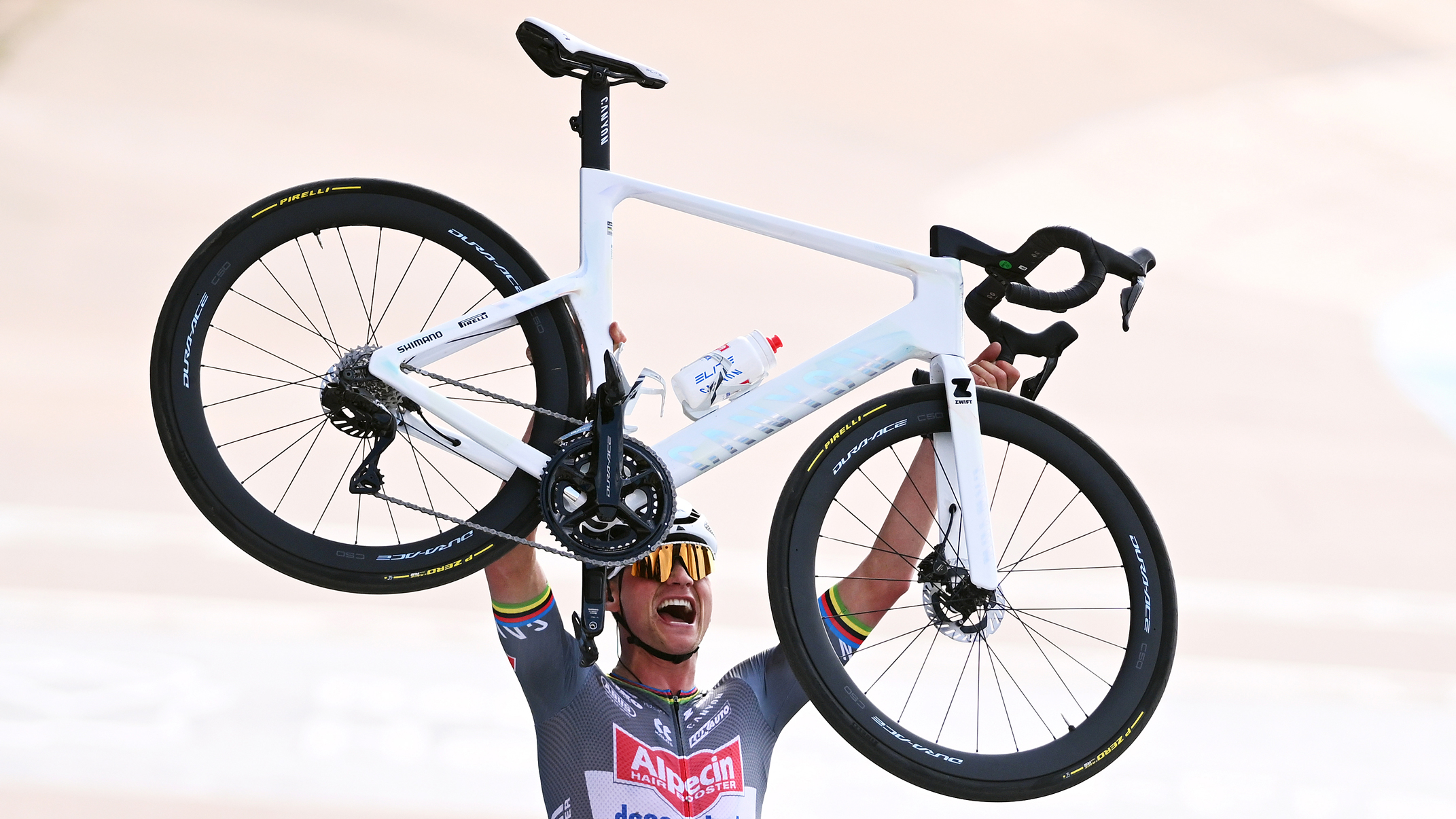 Save £42 on the same tyres that Mathieu Van de Poel won Paris-Roubaix on, this Easter weekend
Save £42 on the same tyres that Mathieu Van de Poel won Paris-Roubaix on, this Easter weekendDeals Its rare that Pirelli P-Zero Race TLR RS can be found on sale, and certainly not with a whopping 25% discount, grab a pair this weekend before they go...
By Matt Ischt-Barnard
-
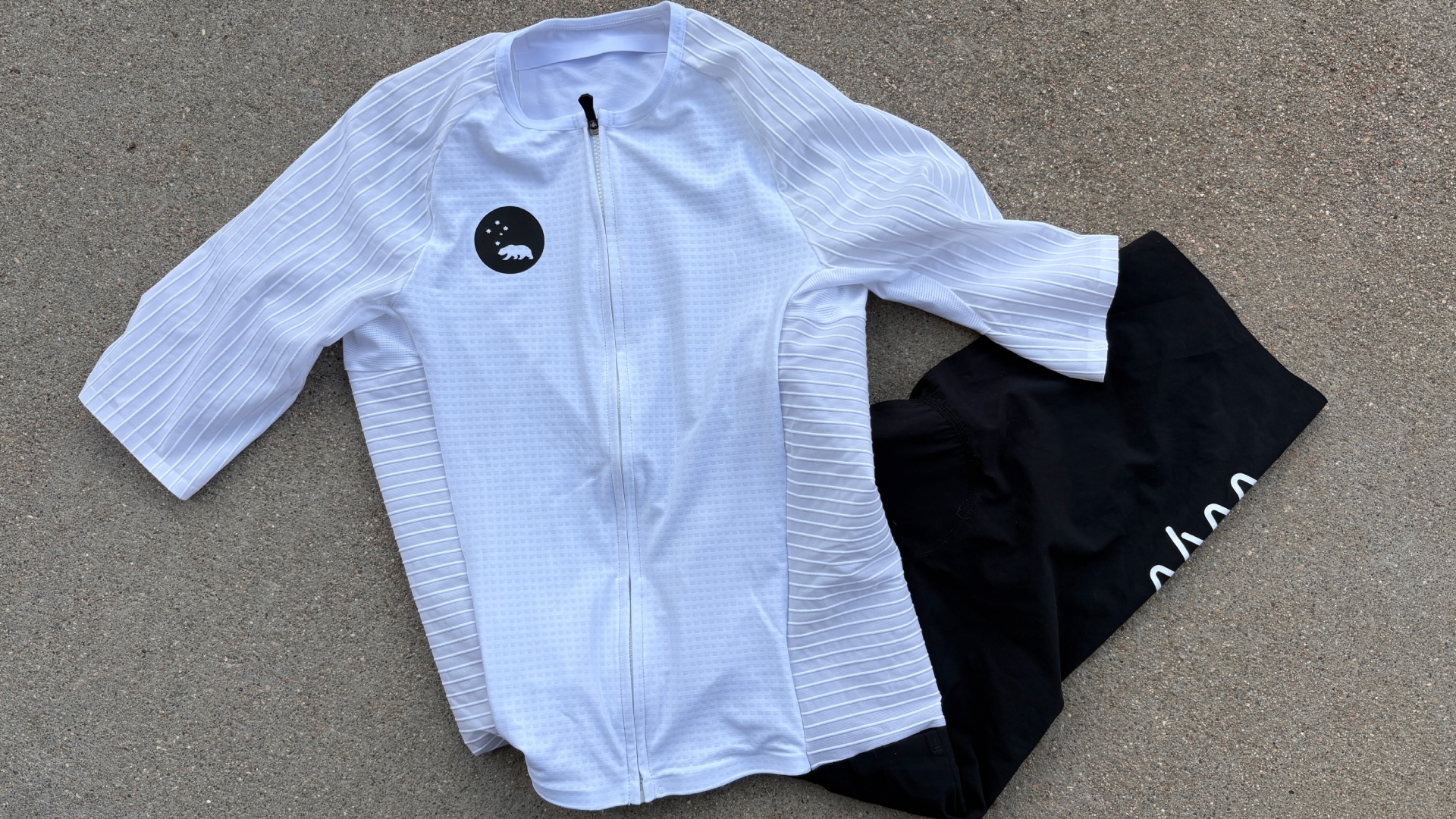 "Like a second skin” - the WYN Republic CdA triathlon suit reviewed
"Like a second skin” - the WYN Republic CdA triathlon suit reviewed$700 is a substantial investment in a Tri Suit, and it is, but you’ll definitely feel fast in it
By Kristin Jenny
-
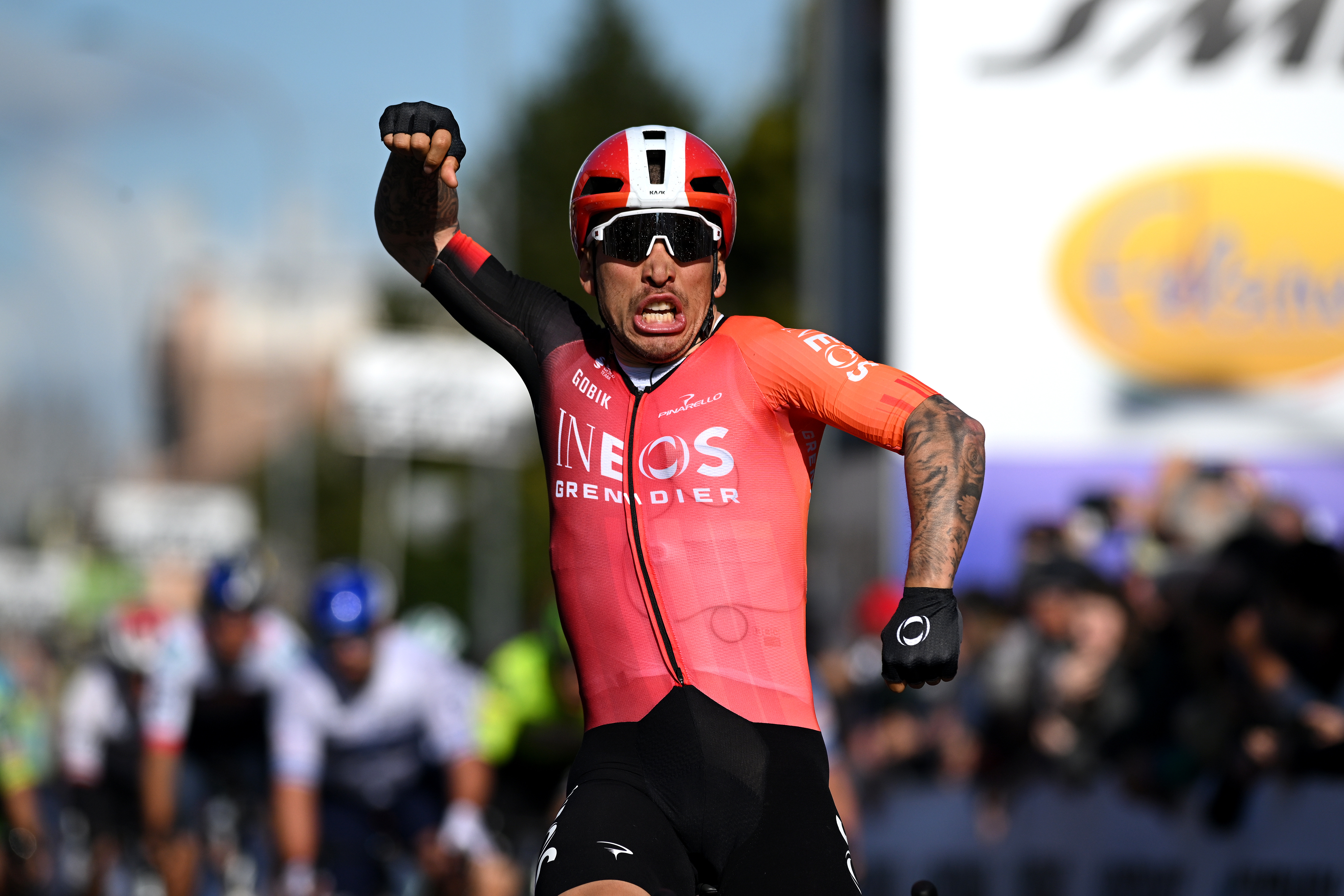 'It can really push me along' - How a velodrome comeback is making Caleb Ewan faster on the road
'It can really push me along' - How a velodrome comeback is making Caleb Ewan faster on the roadAustralian says he'll "definitely" continue track work after rekindling passion
By Tom Davidson
-
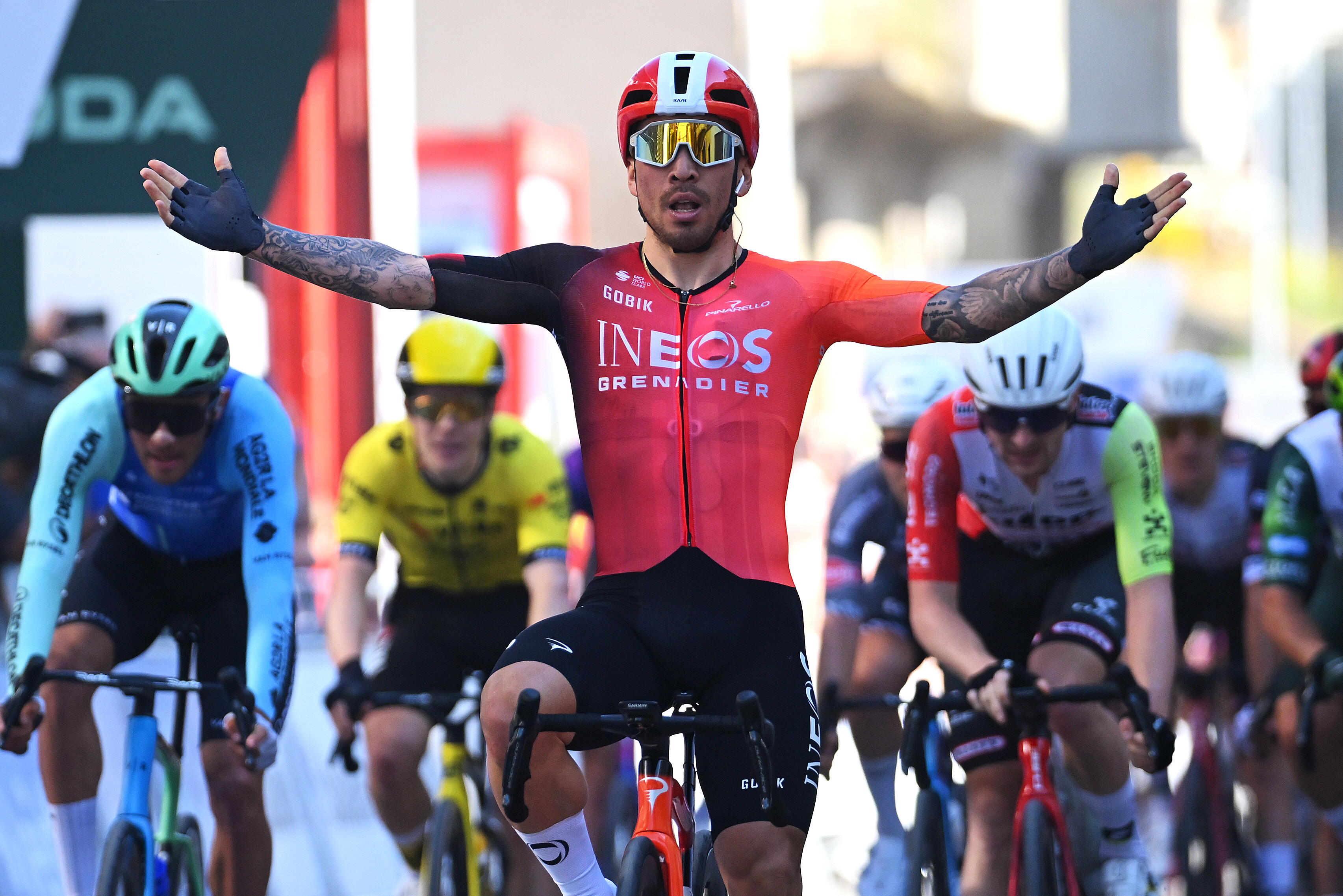 Could Caleb Ewan be Ineos Grenadiers' first Tour de France sprinter since Mark Cavendish? 'That's my goal'
Could Caleb Ewan be Ineos Grenadiers' first Tour de France sprinter since Mark Cavendish? 'That's my goal'"All I can do is try to win as much as possible and prove that I deserve to be there," says Australian
By Tom Davidson
-
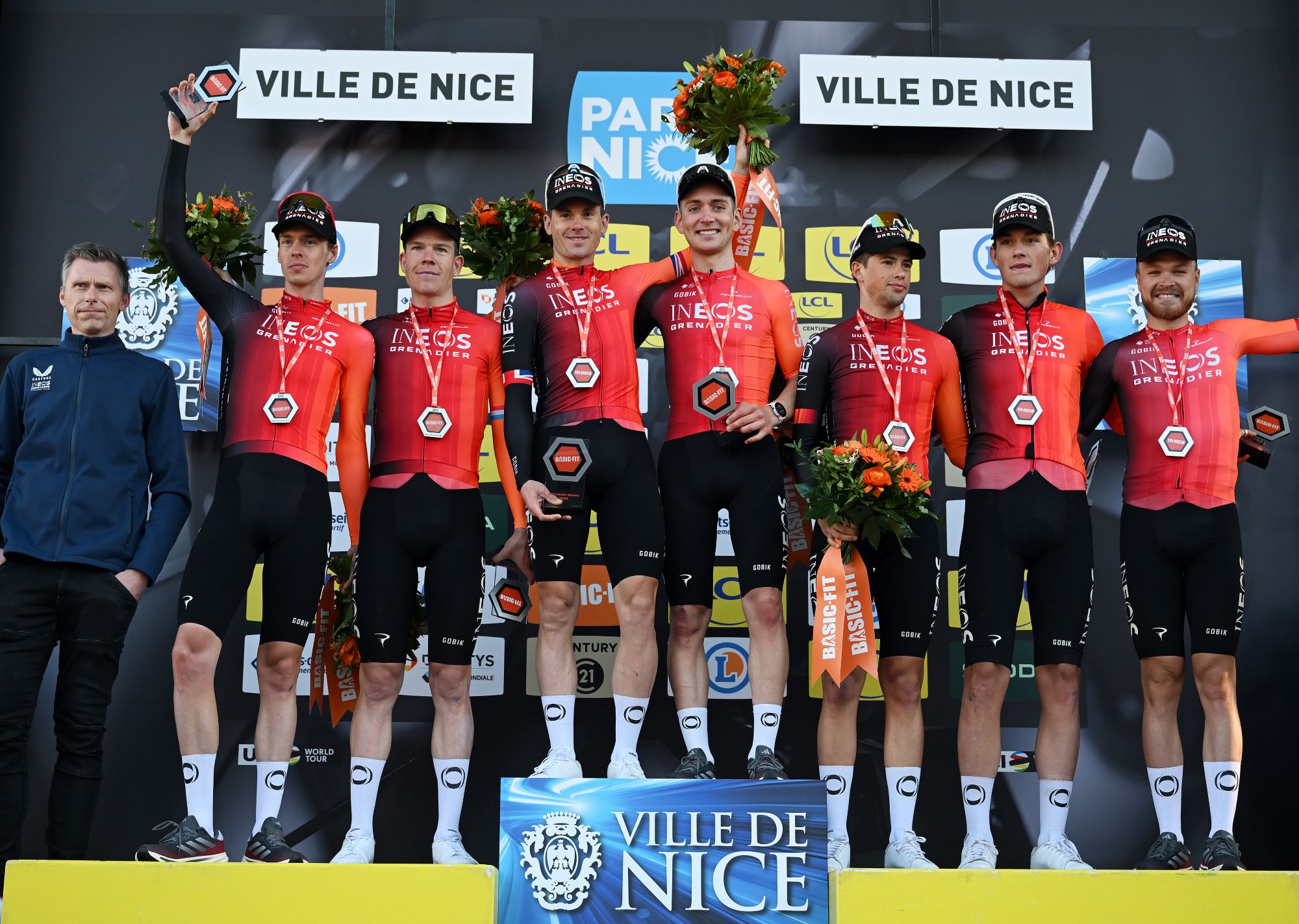 'An unprecedented opportunity for brands to be part of the evolution' - Ineos Grenadiers sponsor hunt steps up with sales agency partnership
'An unprecedented opportunity for brands to be part of the evolution' - Ineos Grenadiers sponsor hunt steps up with sales agency partnershipSportfive have been employed to find "non-endemic global partners for the team"
By Adam Becket
-
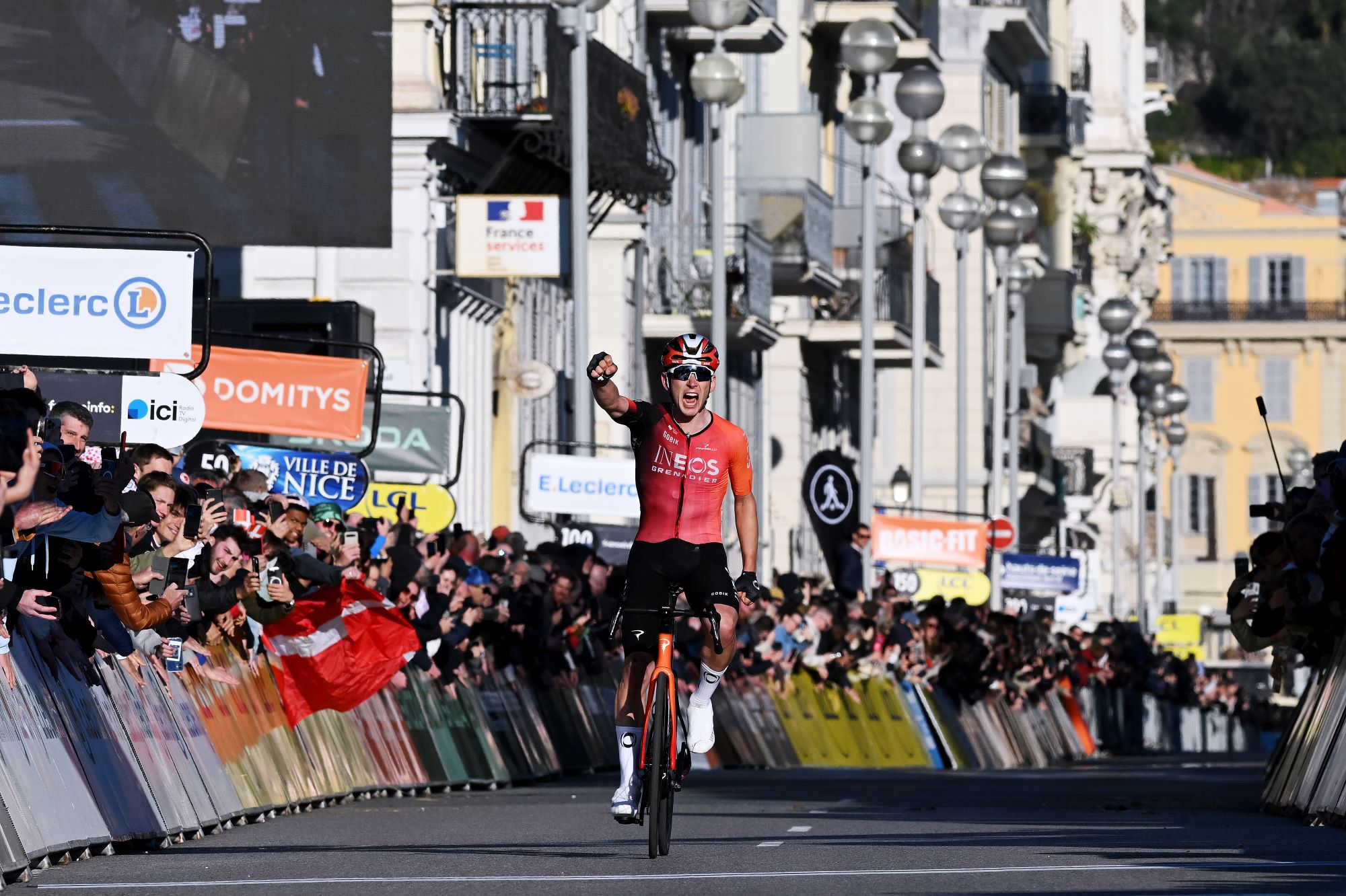 'We've all got a little bit extra in us this year' - Ineos Grenadiers recapture 'fighting spirit' with aggressive Paris-Nice display
'We've all got a little bit extra in us this year' - Ineos Grenadiers recapture 'fighting spirit' with aggressive Paris-Nice displayBritish team continue to put tumultuous 2024 behind them with momentum and a new found mentality
By Tom Thewlis
-
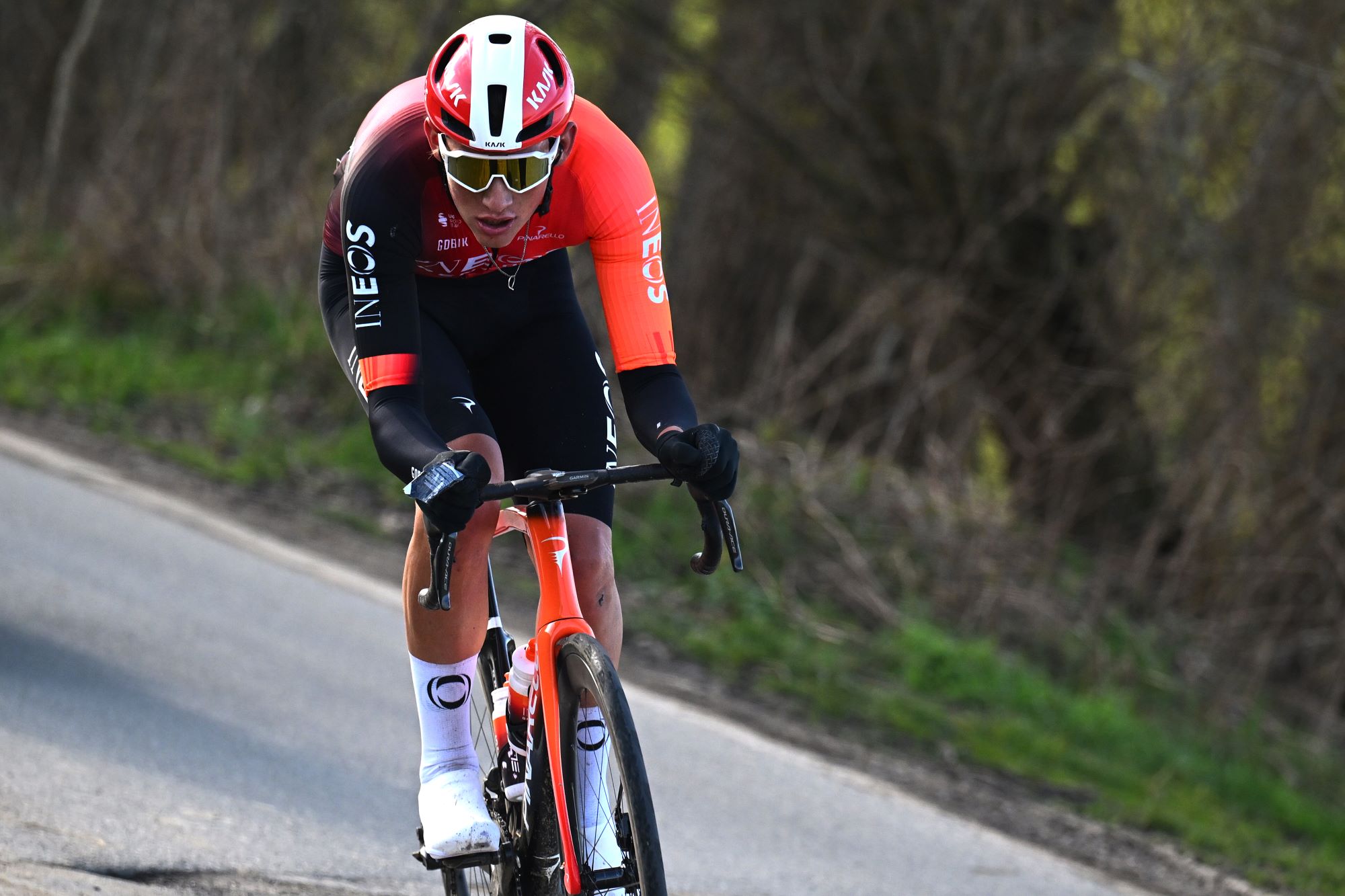 Could a TotalEnergies deal be the end of Ineos Grenadiers as we know them?
Could a TotalEnergies deal be the end of Ineos Grenadiers as we know them?Reports suggested this week that Ineos could be close to signing a deal with the French petrochemical firm
By Tom Thewlis
-
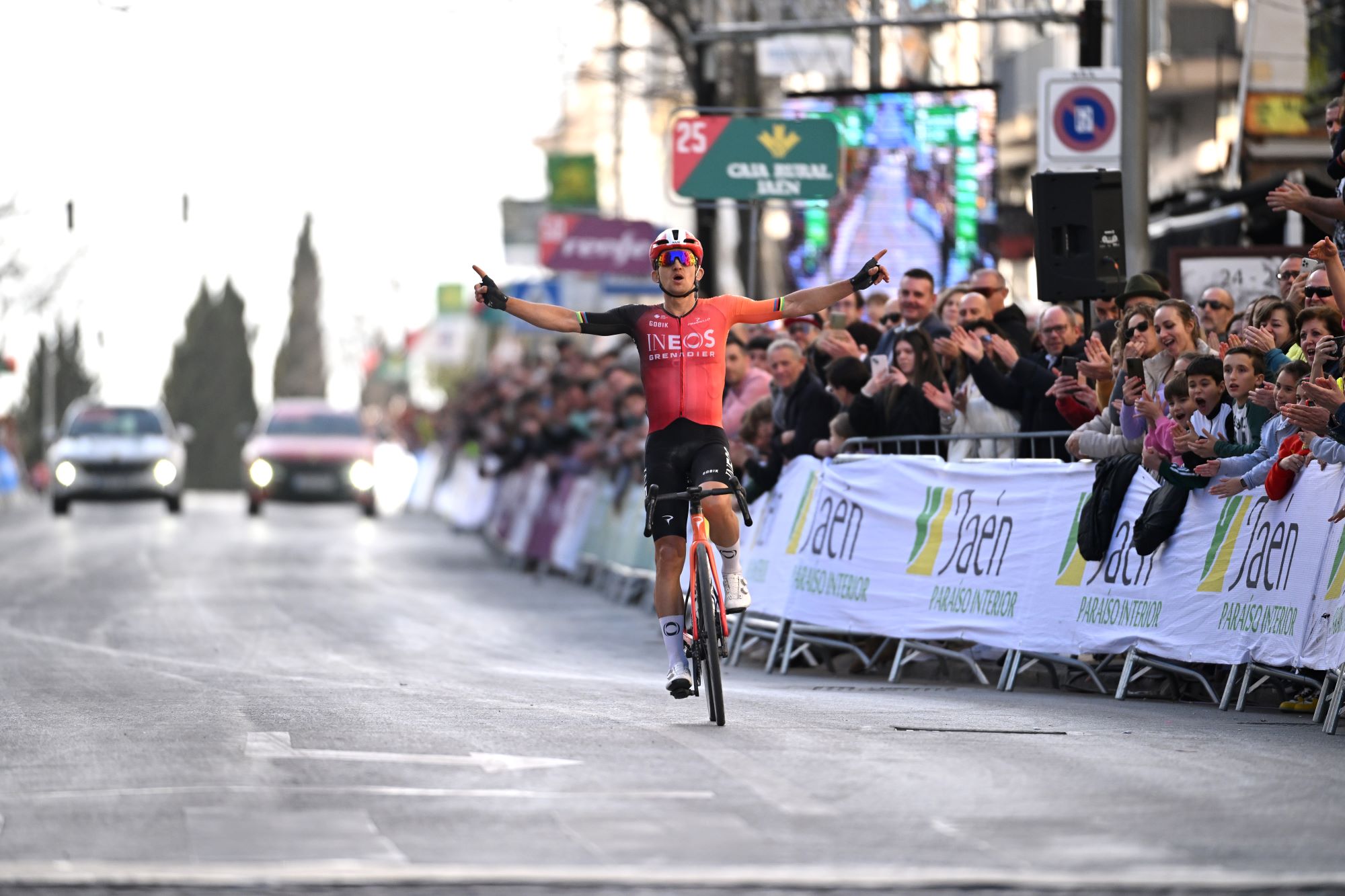 'They’re racing with their hearts again' - Robbie McEwen on Ineos Grenadiers' bright start to 2025
'They’re racing with their hearts again' - Robbie McEwen on Ineos Grenadiers' bright start to 2025The British squad have already won four times in 2025
By Tom Thewlis
-
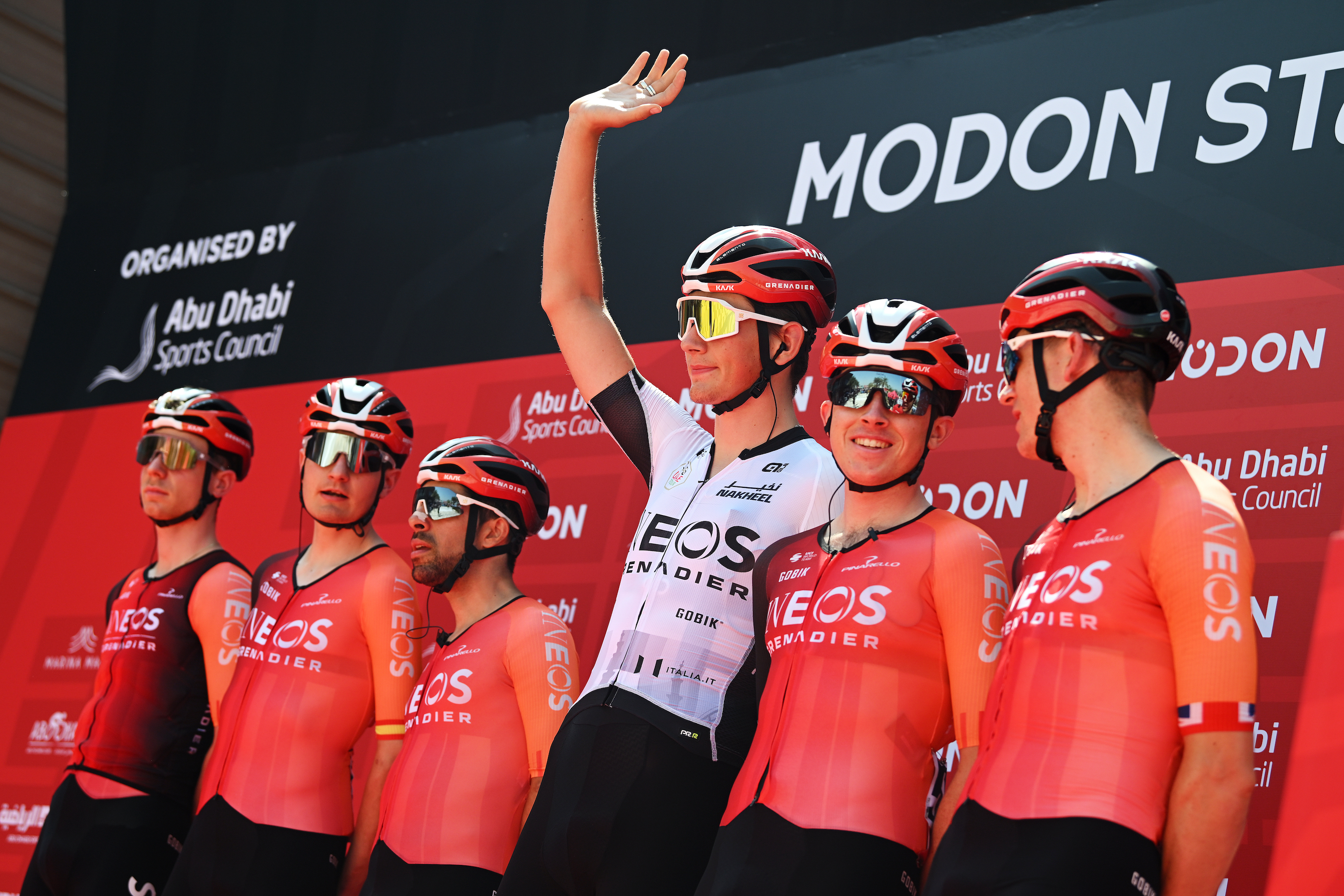 Ineos Grenadiers are entertaining so far this year, but how long will it last?
Ineos Grenadiers are entertaining so far this year, but how long will it last?The British WorldTour squad have won four times already in 2025, but more than that, they have been fun. Is this the new dawn?
By Adam Becket
-
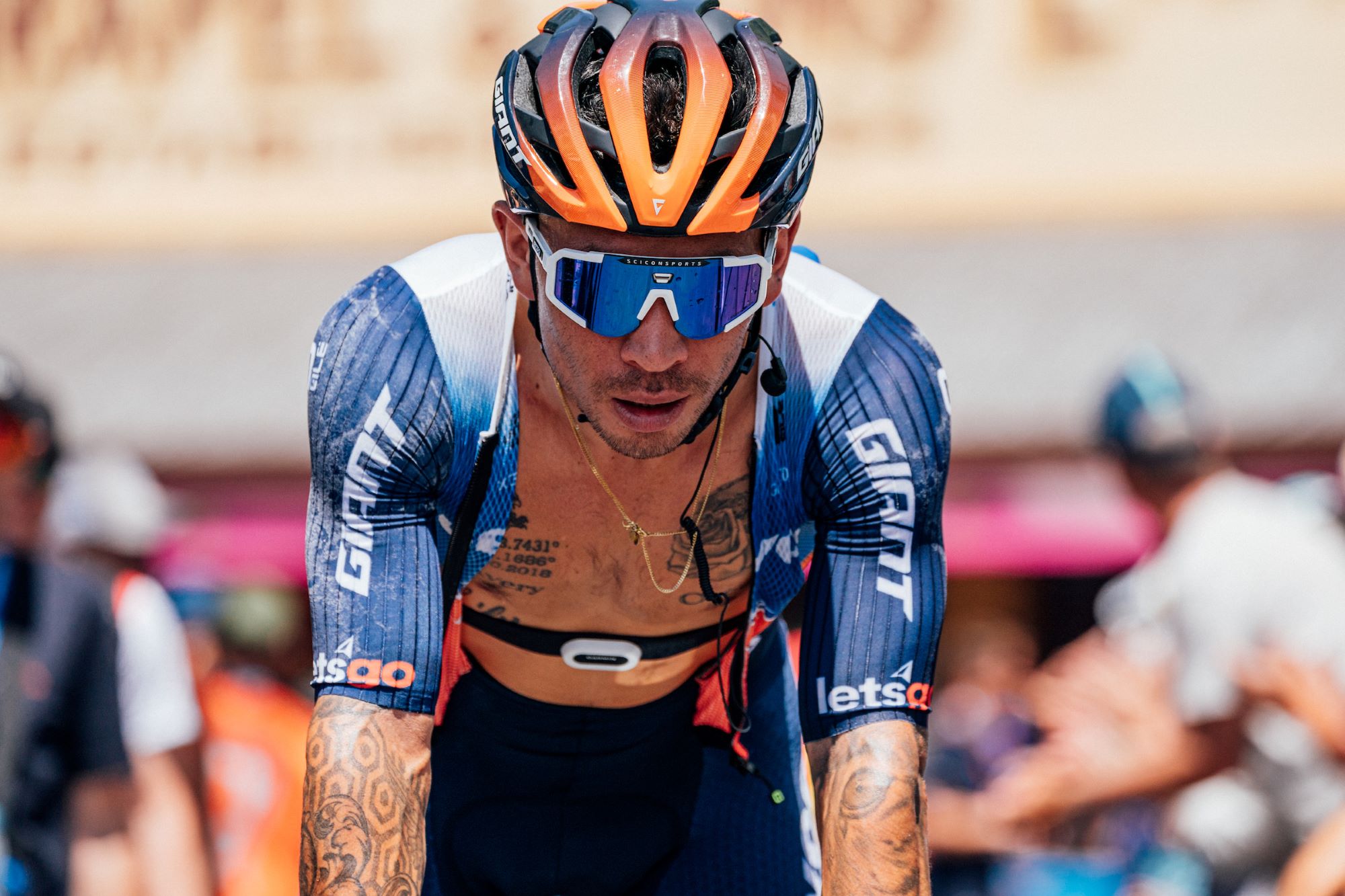 Caleb Ewan says he was put in a 'bad situation' by Jayco AlUla before he joined Ineos Grenadiers
Caleb Ewan says he was put in a 'bad situation' by Jayco AlUla before he joined Ineos GrenadiersEwan joined Ineos Grenadiers in January after spending just one year with Jayco AlUla
By Tom Thewlis